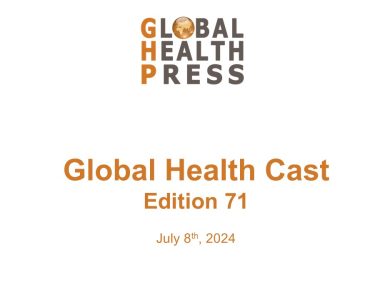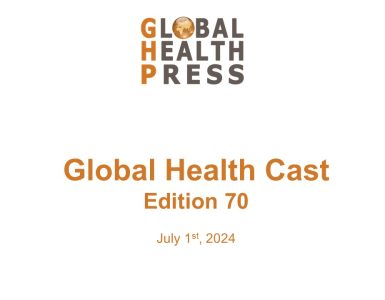Global childhood immunization progress leveled off in 2023, with 2.7 million more children with no or insufficient protection against serious diseases than in 2019, highlighting the need for an immunization push and to strengthen the system going forward, the World Health Organization (WHO) and UNICEF announced today.
The new data on vaccination against 14 serious diseases in 185 countries show that 14.5 million children have received no doses of a key childhood vaccine, that almost 35 million aren’t protected against measles, and that the global coverage hasn’t returned to prepandemic levels.
“The latest trends demonstrate that many countries continue to miss far too many children, UNICEF Executive Director Catherine Russell, JD, said in a joint news release. “Closing the immunization gap requires a global effort, with governments, partners, and local leaders investing in primary healthcare and community workers to ensure every child gets vaccinated, and that overall healthcare is strengthened.”
Over half of unvaccinated children live in 31 fragile, conflict-affected countries with frequent lack of access to safety, food, and healthcare. “These trends, which show that global immunization coverage has remained largely unchanged since 2022 and—more alarmingly—has still not returned to 2019 levels, reflect ongoing challenges with disruptions in healthcare services, logistical challenges, vaccine hesitancy and inequities in access to services,” the statement said.
Progress stalls against DTP, measles
The number of children who received three doses of the diphtheria, tetanus, and pertussis (DTP) vaccine plateaued at 108 million (84%) in 2023, while those who didn’t receive even one dose rose to 14.5 million the same year, up from 13.9 million the year before. And 6.5 million youth received only two doses, the news release said.
Nearly 35 million children have no or insufficient protection against measles, which has fueled outbreaks in 103 countries in the past 5 years. In 2023, only 83% of children were given their first dose of the measles vaccine, compared with 86% in 2019, and the number receiving their second dose climbed only slightly from 2022, to 74%. Most (just under 60%) of the unvaccinated or undervaccinated live in low-income countries, according to a WHO fact sheet.
Director-General Tedros Adhanom Ghebreyesus, PhD, called measles outbreaks “the canary in the coal mine.” “Measles vaccine is cheap and can be delivered even in the most difficult places,” he said in the release. “WHO is committed to working with all our partners to support countries to close these gaps and protect the most at-risk children as quickly as possible.”
Not all bad news
But progress was made as well, with global uptake of at least one dose of human papillomavirus (HPV) vaccine in girls increasing to 27% in 2023 from 20% in 2022. “This was largely driven by strong introductions in Gavi-supported countries, such as Bangladesh, Indonesia, and Nigeria,” WHO and UNICEF said. “The use of the single-dose HPV vaccine schedule also helped boost vaccine coverage.”
HPV uptake still must climb steeply to reach the 90% target to eliminate cervical cancer as a public health problem both in low- and middle-income countries, where 23% of adolescent girls are vaccinated, and in high-income countries (56%).
A recent survey of more than 400,000 users of UNICEF’s digital platform for young people showed that over 75% don’t know what HPV is. And even when informed about HPV and the availability of a vaccine, 52% of respondents said they wanted to receive the HPV vaccine but couldn’t afford it (41%) or couldn’t access it (34%).
Stepping up efforts to meet 2030 goals
Despite modest progress, especially in Africa and in low-income countries, these statistics underscore the need for more efforts to meet the Immunization Agenda 2030 (IA2030) goals of 90% coverage and no more than 6.5 million children who receive no vaccine doses, the authors said.
IA2030 is a vaccination strategy developed by countries and organizations around the world and endorsed by the World Health Assembly in 2020.
“The IA2030 Partnership Council calls for increased investment in innovation and ongoing collaboration,” they wrote. “The council also recommends partners step up their support for country leadership to improve routine immunization as part of their integrated primary health care programmes, backed by robust political support, community leadership, and sustainable funding.”
Source: CIDRAP – University of Minnesota

















